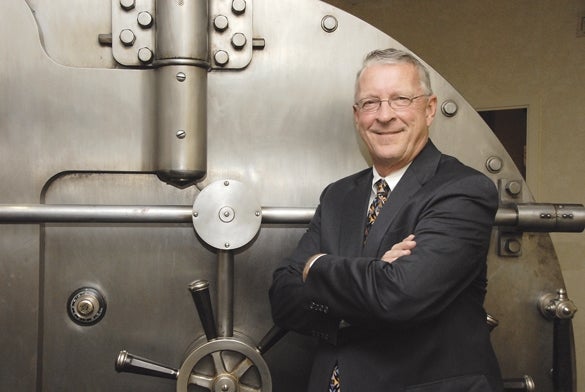Banks aren’t lending. It’s become a familiar refrain and a ready explanation for the length and depth of the current recession.
But it’s not true.
In fact, each of the top five banks based in Central Massachusetts, as ranked by the Worcester Business Journal based on assets, showed marked increases in lending in 2008.
Now, the Office of Thrift Supervision, which regulates four of the smaller banks in the region, is arguing that banks would lend even more if federal regulations would allow them to. And the state Division of Banks is complaining that the media is to blame for the thought among businesses that banks won’t part with their money.
In testimony before the U. S. House of Representatives Committee on Financial Services in late March, Michael Finn, the OTS’s northeast regional director, said “small business owners have noted the constriction of credit.”
Finn said OTS advocates for the complete removal of the cap on small business lending for thrift institutions. The Home Owner’s Loan Act caps the aggregate amount of commercial loans a thrift can make at 20 percent of the institution’s assets.
OTS also advocates for increased flexibility for banks. Finn told the committee that OTS would like to remove the $2 million limit for small business loans and replace it with standards set periodically by the OTS. The change would give OTS the authority to adjust the maximum size of small business loans.
That’s all well and good for Martin F. Connors, president and CEO of thrift institution Rollstone Bank. But Connors said he has other other concerns. “We’ve been very active on the commercial side and on the residential side,” he said. “We’ve had $13 million net loan growth since Dec. 31.”
Connors said mark-to-market rules should be changed so they are “not so penal on banks.” He also said Congress needs to pump $100 billion into the FDIC to keep it from enacting a 20 basis point assessment on banks. That assessment, in essence a bank’s fee to be covered by FDIC insurance, would take Rollstone’s assessment from $200,000 to $520,000 this year and to $720,000 next year. In 2007, Rollstone paid $40,000.
In testimony before the same committee on the same day as Finn, Steven L. Antonakes, state commissioner of banks, said the proposed special assessment would cost each of the 36 state-chartered banks more than $1 million and 73 more would owe more than $500,000 in increased premium payments.
Changing Prospects
But Antonakes went a little further into why banks are thought to be in non-lending mode.
“Some community bankers are frustrated that business loan demand has diminished due to media reports that credit is unattainable,” he said. What’s more accurate is that “while some community banks have tightened underwriting criteria, many others report that businesses seeking credit have significantly weaker financial positions than before our economic decline took hold.”
Between the federal economic stimulus program, ever-decreasing interest rates and those who used to be customers at some of the country’s largest banks deciding to do business with local banks, community lenders are logging healthy increases.
“These times are times of opportunity,” said Brian Thompson, president and CEO of Commerce Bank & Trust of Worcester.
In 2007, Commerce reported net loans and leases of $439 million to the FDIC. In 2008, that number jumped to $580 million. Over the same period, the bank’s commercial loans increased by 32 percent.
Thompson said the first quarter of 2009 was slower than the same quarter a year ago, but “we’ve seen other, larger banks contract and that is opportunity for us.” Commerce Bank is a private bank owned by David “Duddie” Massad. Massad’s other businesses, particularly LBM Financial LLC of Marlborough, have been the subject of lawsuits by real estate developers and an alleged FBI investigation, according to reports in the Worcester Telegram & Gazette.
From the perspective of John Heerwagen, chairman, president and CEO of Middlesex Savings Bank, “customers have been out there.” But, he said, for “garden variety business lending, big banks have shown not very much interest in small- to medium-size businesses.” Also, the mortgage brokers that dominated the residential lending market between 2003 and 2007 are all but gone and borrowers are turning to community banks in their stead.
“It’s not like customers are dropping from the sky,” Heerwagen said. “They’re turning to other providers.”

